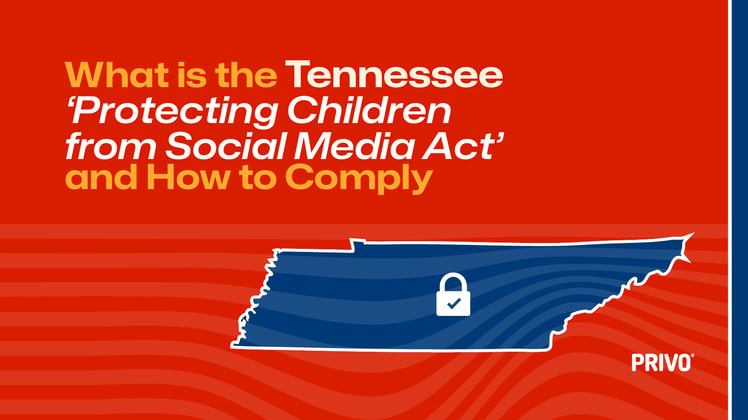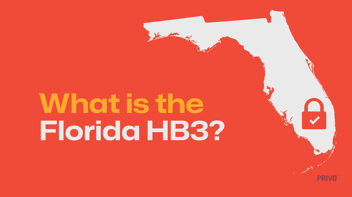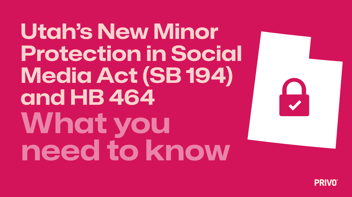
What is the Tennessee 'Protecting Children from Social Media Act' and How to Comply
In a move to safeguard minors from the potential risks of social media, Tennessee’s new legislation places strict requirements on social media platforms. The Protecting Children from Social Media Act (HB 1891) aims to ensure that children under 18 are using social media responsibly, with parental consent and supervision. While the bill addresses important safety concerns, it also brings significant changes to how social media companies will manage user accounts.
A number of other states including Georgia, Texas, Arkansas, Florida, Louisiana, Ohio, and Utah passed similar laws but are all being legally challenged. NetChoice is now suing the State of Tennessee as they see the Act as a serious overstep that goes against First Amendment rights and has filed for a preliminary injunction. Until the injunction is granted, covered entities need to comply in the mean time.
What you need to know
Effective Date:
January 1, 2025
- Key Requirements:
1. Age Verification and Parental Consent
One of the core provisions of the law is the requirement for social media platforms to verify the age of anyone attempting to become an account holder. This verification must happen at the time the user tries to create an account or within 14 days if they’re attempting to access an existing one.
If a minor (someone under 18) is attempting to become an account holder, the platform must obtain express parental consent before allowing them to continue. This means parents must actively approve their child's account creation, helping ensure that minors are not on platforms without their parents’ knowledge or consent.
2. Parental Supervision of Minors’ Accounts
Once a minor's account is verified, the bill also includes provisions for parental supervision. This gives parents greater control over their child’s online activity.
- Account Monitoring: Parents will be able to monitor their child's account, including viewing privacy settings, setting daily usage limits, and enforcing time restrictions. This ensures that minors aren’t spending excessive time on social media platforms, and helps parents manage screen time effectively.
- Revoking Consent: Importantly, the law also allows parents to revoke their consent if they feel their child should no longer have access to a platform. This revocation process ensures parents retain control over their child's participation in online communities.
- Account Monitoring: Parents will be able to monitor their child's account, including viewing privacy settings, setting daily usage limits, and enforcing time restrictions. This ensures that minors aren’t spending excessive time on social media platforms, and helps parents manage screen time effectively.
Who needs to comply?
Social media companies and platforms that operate within the state that allows a person to create an account and enables an account holder to communicate with other account holders and users through posts. "Post" means content (text, image, or video) that an account holder makes available on a social media platform for other account holders and users to consume.
Not all online services are affected by this bill. The definition of a "social media platform" is specific and excludes several types of services. For instance:
- Interactive gaming
- Educational entertainment
- Online shopping services that only allow users to comment on products or make transactions.
- Cloud storage or computing services where the interaction is limited to file storage and sharing.
- Peer-to-peer payment services are also exempt, provided they are used primarily for transferring money.
This means that platforms focused on other functions—such as e-commerce or payment processing—won’t be required to verify ages or obtain parental consent.
How Will This Law Be Enforced?
Enforcement of the bill falls under the responsibility of the Tennessee Attorney General. If there is evidence that a social media company is not complying with the requirements, the Attorney General can investigate the company and take legal action. Penalties can be applied for companies that fail to verify ages or obtain parental consent for minors using their services.
The law also ensures that any attempts by a social media company to waive or limit compliance with these requirements will be invalid, protecting the public interest.
How can your business comply?
PRIVO’s specialized suite of cloud-based solutions and expert services were engineered specifically to address minors online, addressing the entire spectrum of age, identity and privacy needs for companies whose business objectives involve engaging directly or indirectly with minors, offering stand-alone micro services.
Contact us to learn more and to see a demo of our easy to implement compliant smart age gate, age verification and parental consent services to help your company comply with the Protecting Children from Social Media Act and other state, federal and international regulations.
For more information about Tennessee’s 'Protecting Children from Social Media Act' (HB1891):
>> View the bill by clicking here.


 Blog
Blog





 Facebook
Facebook Linkedin
Linkedin Blog
Blog


 Twitter
Twitter